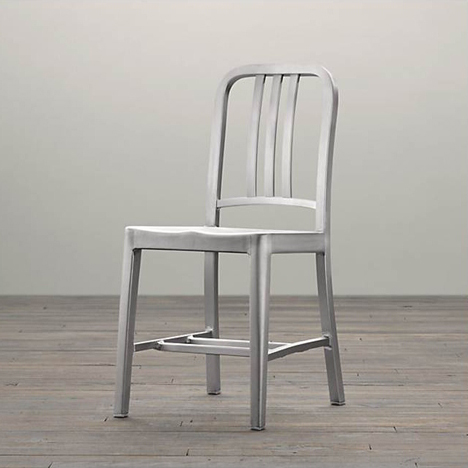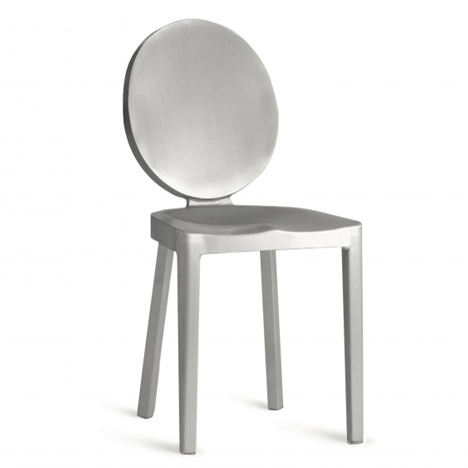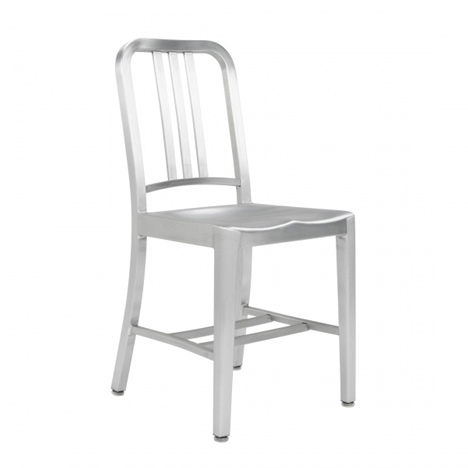News: American furniture brand Emeco has reached a settlement in its legal dispute with two companies that were allegedly copying the company's Navy Chair and Kong Chair.
Pennsylvania-based Emeco issued a press statement detailing the agreement, which declares that East End Imports and Sugar Stores will permanently cease "selling, offering, distributing and marketing reproductions from Emeco's Navy Chair and Kong Chair line."

The agreement also outlined that the two companies will not "copy, import, manufacture, induce the manufacture of, distribute, import, advertise, market, promote offer for sale or sell any chair or article of furniture that is identical to, confusingly or substantially similar to any article of furniture designed and sold by Emeco."
The financial details of the agreement have not been disclosed. The dispute was first filed in July last year in New York.

The settlement follows on from a similar agreement made with Restoration Hardware last February, which was accused of illegally copying Emeco's Navy Chair, the iconic hand-made aluminium seats originally designed for the US Navy in 1944.
The Kong chair, originally designed by Philippe Starck for the Chinese restaurant Kong in Paris, is made by hand-welding 24 separate pieces of aluminium together and costs £2700. Lexmod, one of the subsidiary companies of the accused, has been producing a chair of similar design made from injection-moulded plastic that retails for £50.
Emeco CEO Gregg Buchinder has said his aim is to set an industry standard by continuing to bring actions against any companies who infringe on the company's trademarks or designs.
Earlier this year, online home rental brand Airbnb agreed to replace a set of aluminium chairs in its San Francisco headquarters after Emeco spotted they were imitations of its patented designs in an article published by Dezeen.
The issue of copyright in design remains a contentious one, with several high profile stories in the last year including UK designer Thomas Heatherwick's alleged copying of New York design studio Atopia's cauldron, and a developer in China copying Zaha Hadid's building designs.

